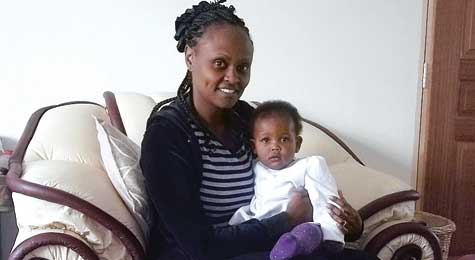×
The Standard e-Paper
Kenya’s Boldest Voice
 |
| Joy Wangari and her baby Imani. [Photos: Simon Anyona/Standard] |
Women are increasingly postponing their career progression in favour of raising children, a move though difficult, is most fulfilling. Simon Anyona spoke to some
She wakes up at 6am, prepares her husband’s bath, presses his clothes, prepares breakfast for the family and sees him off as the house help does the laundry.